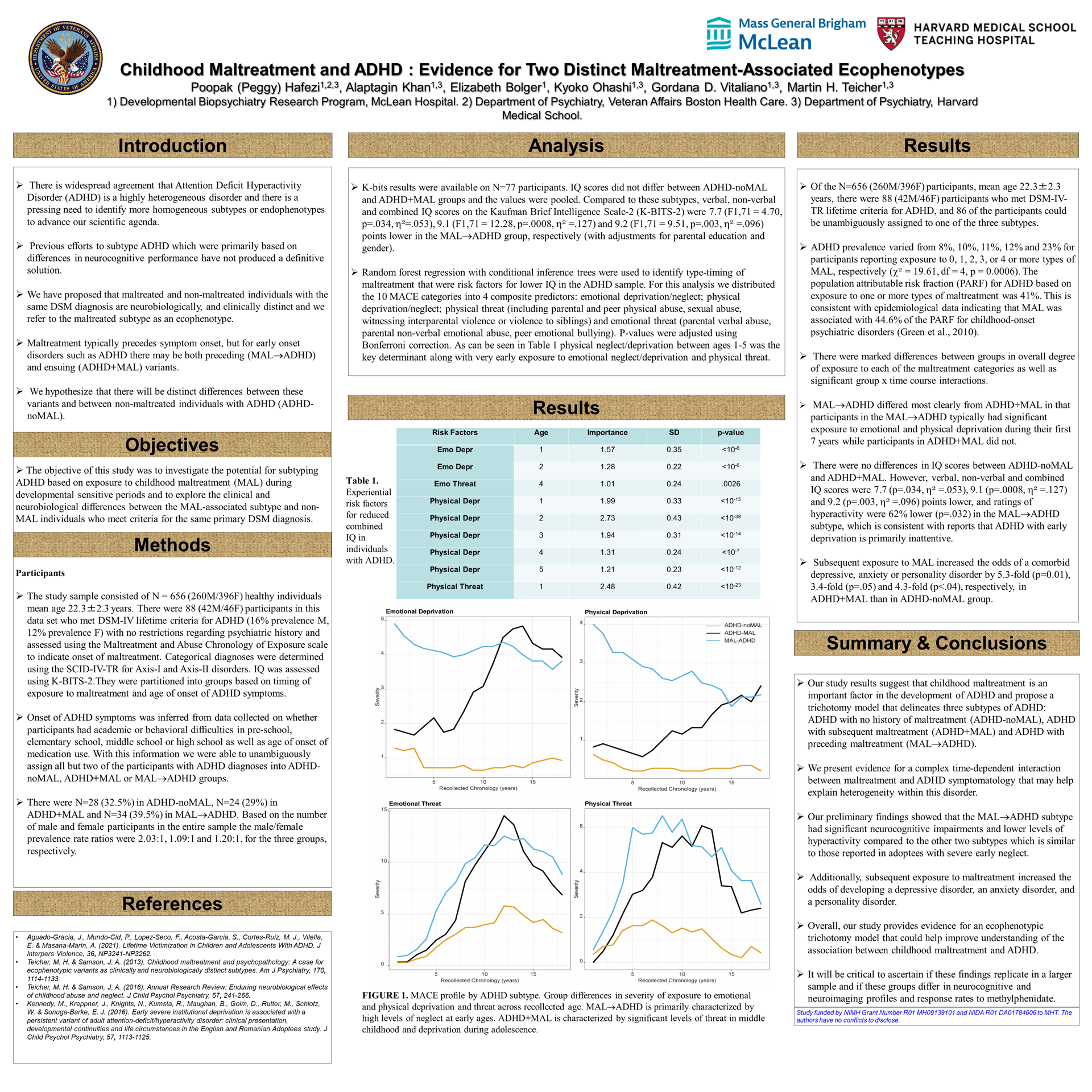Scientific Abstract
Background: We have proposed that maltreated and non-maltreated individuals with the same DSM diagnosis are neurobiologically and clinically distinct and we refer to the maltreated subtype as an ecophenotype. Maltreatment typically precedes symptom onset, but for early 0nset disorders such as ADHD there may be both preceding (MAL-ADHD) and ensuing (ADHD-MAL) variants. We hypothesize that there will be distinct differences between these variants and between non-maltreated individuals with ADHD (ADHD-noMAL).
Methods: Healthy, unmedicated 18-25-years-olds were recruited from the community with no restrictions regarding psychiatric history and assessed using the Maltreatment and Abuse Chronology of Exposure scale. Categorical diagnoses were determined using the SCID-IV-TR for Axis-I and Axis-II disorders. IQ was assessed using K-BITS-2.
Results: N=88 (42M/46F) of the N=656 (260M/396F) participants met DSM-IV-TR lifetime criteria for ADHD, and N=86 could be unambiguously assigned to one of the three subtypes. There were no differences in IQ between ADHD-noMAL and ADHD-MAL. However, verbal, non-verbal and combined IQ scores were 7.7 (p=.034, h2=.053), 9.1 (p=.0008, h2=.127) and 9.2 (p=.003, h2=.096) points lower, and ratings of hyperactivity were 62% lower (p=.032) in the MAL-ADHD subtype. Odds of a comorbid depressive, anxiety or personality disorder were 5.3-fold (p=0.01), 3.4-fold (p=.05) and 4.3-fold (p = .04) greater in ADHD-MAL than in ADHD-noMAL.
Conclusions: We present evidence for a complex time dependent interaction between maltreatment and ADHD symptomatology that may help explain heterogeneity within this disorder. The MAL-ADHD subtype had neurocognitive impairments and low levels of hyperactivity similar to those reported in adoptees with severe early neglect.

